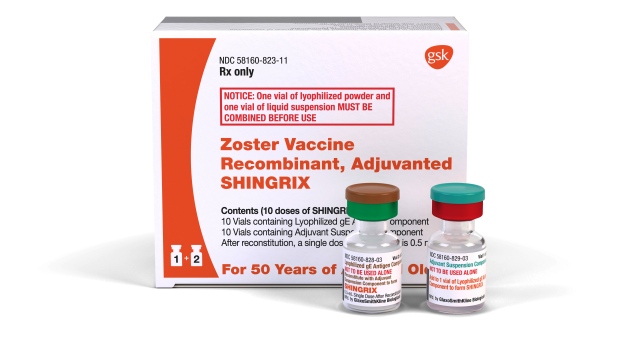GSK wants to double Shingrix sales, and a new FDA okay could help

The FDA has approved GlaxoSmithKline's shingles vaccine Shingrix for use in people aged under 50 who are immunocompromised – a key step in the UK drugmaker's plan to build the shot into a £4 billion-plus product in the next five years.
Shingrix pulled in sales of £2 billion (around $2.8 billion) last year from its current indication in the prevention of shingles in the over-50s age group but GSK reckons that younger immune-supressed patients could be a sizeable new market for the vaccine.
The FDA review was based mainly on a clinical trial showing that Shingrix was able to protect younger patients undergoing a bone marrow transplant for haematological cancers from developing shingles, but also included data from people immune-suppressed due to HIV, solid tumour and renal transplants.
Shingles is caused by the herpes zoster which causes chickenpox. While the immune system can generally shake off the symptoms of chickenpox, the virus lies dormant and – if a person becomes immunocompromised – can reawaken, resulting in painful skin lesions.
In addition to the sizeable population of potential in the younger age group, GSK reckons that here are more than 100 million adults aged 50 years and older in the US who remain unvaccinated with the vaccine despite being eligible.
For comparison, around 24 million people in the US have been vaccinated with Shingrix in the four years since it was first launched.
At its recent investor update, GSK said it intends to boost sales in the US and launch Shingrix in around 35 additional countries in the next three years as it chases after the doubled sales target.
The shot – which was dubbed the "crown jewel" of GSK's vaccine franchise at the meeting by division president Roger Connor – was approved in the at-risk over-18 population in Europe last year.
Unlocking the big Chinese market is a key pillar of that expansion strategy, as shingles is estimated to affect more than 1.5 million people aged over 50 in China every year and is recognised by the government there as a priority disease. GSK launched Shingrix in China in 2020.
Meanwhile, the company is also investing in additional manufacturing capacity to meet the expected demand, with a new plant due to come online in 2024.
Shingrix was hit hard in the first quarter as a result of the prioritisation of COVID-19 vaccination programmes in the US and other markets, with sales dropping almost 50% to £327 million, but GSK has seen a rebound since and expects to get the product back on track in the second half of the year.
According to recent report from Avalere Health, more than 17 million doses of recommended vaccines, including Shingrix, were missed by adults during the pandemic.












